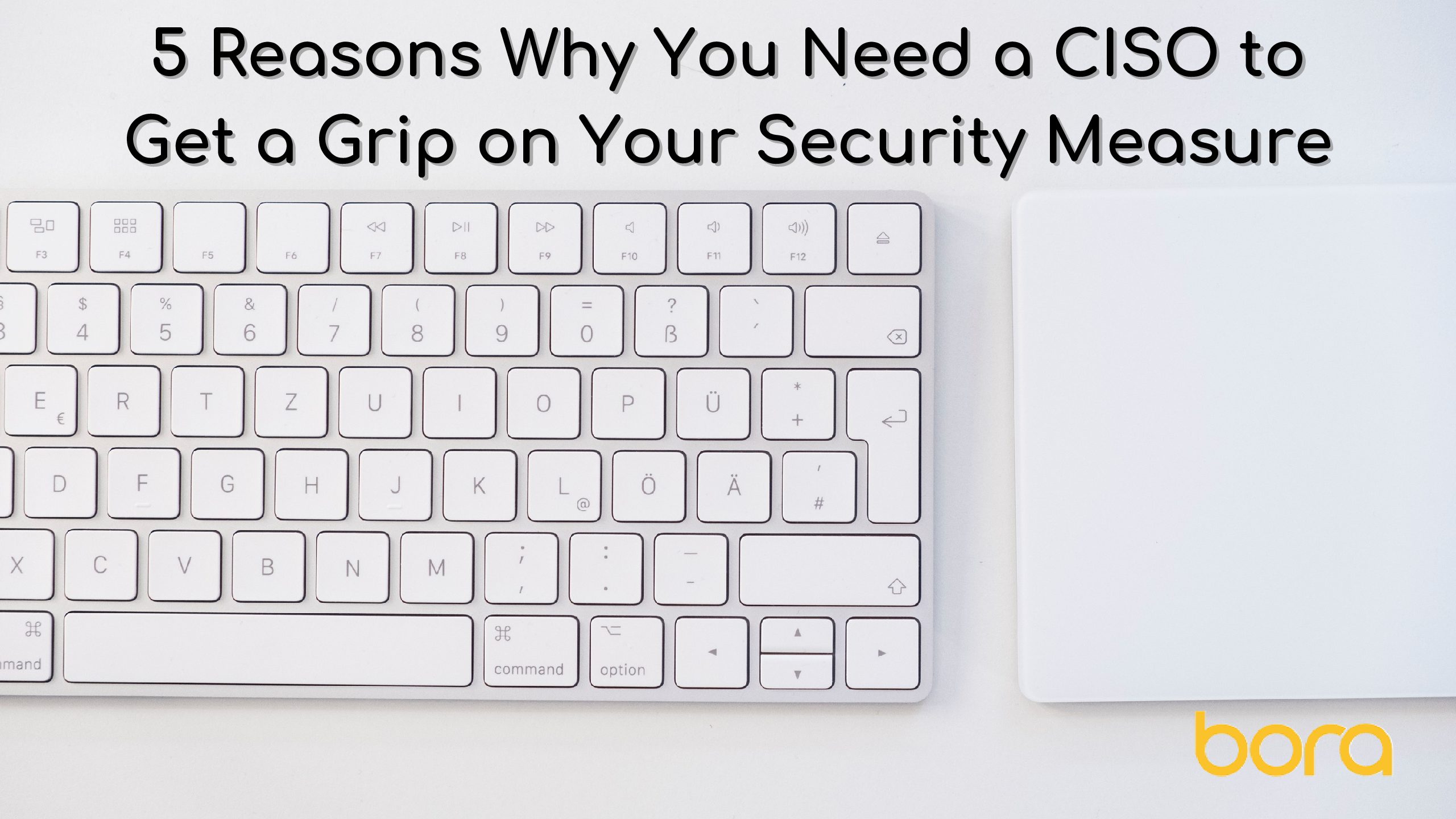With cybercrime rates exceeding $1 trillion losses last year, the awareness of the need for IT security is nothing new within the corporate leadership. And yet, most businesses still view cybersecurity as an add-on function—something that’s outside the scope of the traditional management operations like sales or customer service. If you have not done so, now is the time to consider how a CISO affects your security.
Right now almost every business is going through a digital transformation and any instance of cybercrime poses direct threats beyond their first line of defence. Cybersecurity becomes a mission-critical business issue when security risks loom over the extended digital enterprise, including employees, customers, and partner ecosystem.
Successful enterprises such as Amazon and Google—for example—don’t look at “IT & Security” as a cost center. They prioritize their IT security as an enabler for accelerating the growth—which gives them a significant edge in the market.
As such, the role of a Chief Information Security Officer (CISO) is crucial for every organization to gain a 360-degree view of the threat landscape. Your business needs a CISO more than ever—especially in today’s juncture where all businesses are rapidly moving towards a largely phygital future.
Here is why the CISO role is critical to growing business and keeping it safe:
1. Enabling the C-suite to look at the whole picture
More often than not, a CISO’s role is all about focusing on the negatives—making them the cynic in a pantheon of optimists. CISOs always have to play the balancing act of helping run the business as usual while keeping hawk-eyed scrutiny on the complex probability of cybercrime—where the security leaders have to be right all the time while the bad guys have to be right just once.
A CISO helps the leadership understand security risks, prioritize what needs to be protected, and devise risk mitigation strategies. At the leadership table, not everyone gets the harm cybercrime can bring to the business. The CISO speaks the CIO, CEO, and the board’s language to educate them about the risks of cybercrime in the bigger business context.
2. Driving change and innovation
Businesses today operate at the intersection of people, technology, and industry. A CISO helps your organization instil security as a fundamental skill in your workforce, adopt the right technological solutions to harness your security preparedness, and navigate the fast-changing business environment.
CISOs are actively involved in managing commercial and strategic partnerships, helping create risk-free sandbox environments for your teams to innovate freely, and collaborating with cross-functional leaders to avoid security mishaps.
A common scenario for CISOs across all industries is to challenge the status quo culture of “we have always done things this way.” Your security posture is only as good as the last security configuration and your ability to keep up with the latest risks. The CISO helps you keep security loopholes under check by influencing change and encouraging innovation.
3. Helping your business recover from damages
A CISO is like an in-house insurance advisor—they usually foresee attacks before they happen and prepare a crisis management plan in place to soften the blow. The contingency plan helps your business get back up and running quickly with minimal losses.
In absence of a central figure like CISO, your business will take a long time to shake off an attack’s shockwave, recover lost data, and reconfigure all the security checkpoints.
Even if you have cyber risk insurance in place, you would need a CISO to design the risk management framework, develop a business continuity plan, engage with the broker agency to get suitable coverage, and oversee the risk assessment process for maximum return in the event of a security breach.
4. Overseeing security governance and industry compliance
The number of governance, regulations and compliance expand at the speed with which an industry grows. Depending on which industry your business operates in, it’s likely that you have a growing list of industry regulations to keep up with.
Compliance is a divergent function that demands a central policy-making authority to oversee all requirements to comply with the industry norms. The CISO’s office is pivotal to building relationships with internal and external stakeholders, simplifying complex processes, and mediating conflict management situations to make your business compliant with the industry’s standards.
5. Managing finance and supply chain
The common misconception about a CISO’s role is that they are limited to managing the SOC and IT. While that is true, they also play a big role in budgeting the IT resources, making commercial negotiations, and handling supplier management.
For example—it’s the job of the CISO to sign new contracts, oversee renewals, hire audit partners, and take part in the technological integration process during mergers and acquisitions. Without a CISO watching over these operations, your resource procurement and supply chain processes can turn into security nightmares.
6. Building a security culture
The CISO is a driving force in leading security teams, inspiring new leaderships, developing talents, and influencing organisational behavioural changes. The metric for success for businesses today is how well they can adapt to the fast-changing external environments—and a CISO is often the key function to facilitate such agility in a business.
With the help and support of the company leadership, CISOs can shape the organization’s design, improve your company’s resilience to attacks, and launch new business initiatives to strengthen your security posture. All in all, the CISO’s role affects company-wise cultural awareness, flexibility, and outcome-driven processes.





